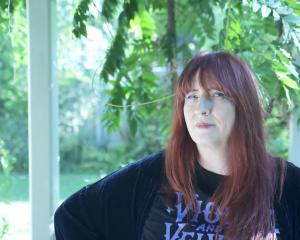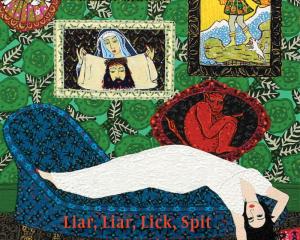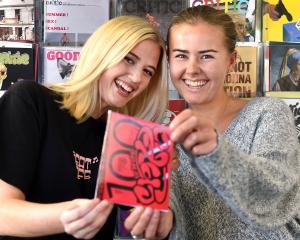
THE INVENTION OF NEW ZEALAND
Art & national identity 1930-1970
Francis Pound
Auckland University Press, $75, hbk
Nearly three decades ago, Francis Pound rattled some cages in the local art world with his shocking pink-covered book Frames in the Land: Early Landscape Painting in New Zealand.
Echoes of some of those stoushes resurface 25 years later in Pound's description of Tim Garrity's criticism of the new painters whose work was threatening to dethrone the centrality of nature and the landscape.
The Invention of New Zealand is a big book in every sense - 190 (sometimes frustratingly small) colour plates, about 160,000 words by my guess, and almost as many ideas and arguments.
Fortunately for the dedicated reader keen to check sources, AUP has provided footnotes, not the endnotes so common today.
It's a demanding book.
In fact, there are several books in here and it has been a long time on the stove.
If it might have sometimes benefited from a harder edit, the weaving of Pound's intellectual growth into the book also enhances it, making up for the occasional jumpy thought transition and for too many "topos" and "tropes" for my liking.
It's a punchy, passionate and often witty book.
Pound is fond of putting phrases or even entire sentences in italics to make his point.
The title is based on comments made 20 years apart by Allen Curnow and Colin McCahon.
The fact that one is a writer and another a poet marks this out as an unconventional art history.
More has been published about literary nationalists (Never a Soul at Home, etc) than about artistic nationalists, although Pound reminds us that there were numerous crossovers between the two groups.
There are almost as many references to writers such as Curnow and Holcroft as there are to painters.
Landfall, after all, featured both.
Although Pound is not wholly uncritical of New Zealand's artistic nationalists, he has their movement in his sights.
The Invention of New Zealand is a sustained attack on the idea of artistic nationalism (with a capital N); the belief that cultural producers were isolated islands "anchored in the indifferent blue".
Curnow called New Zealand "two islands not in narrow seas" and twittered on about some future child learning "the trick of standing upright here".
They were an anxious lot, for anxiety "is at its very heart" [his italics].
One of the things that Pound condemns most was the nationalist preference for country over city, nature over buildings or machinery.
Turner celebrated an early locomotive, but a century later New Zealand's painters preferred trees.
"In projecting its pastoral fantasy, Nationalism seeks to define New Zealand as, in its true essence free of history - free of the experience of industrialisation and new technologies."
Pound explores the growth of the literary and artistic scenes over a period of approximately 40 years, but highlights McCahon in particular.
He sees Mr I AM's move from what he calls "regional realism" to the influences of Cubism and of American abstract expressionism as typifying the New Zealand nationalists' warping of these urban styles to meet their preoccupation with the New Zealand landscape.
Ultimately, nationalism came to a dead end.
The abstract painting of Gordon Walters and Milan Mrkusich was a departure, happily urban.
He describes Richard Killeen's "Domestic (Black and White)", 1987, with its office tower and chimney as "Killeen's final reply to the Nationalist man with a landscape in his head".
As the word "man" suggests, nationalism was also male - "there can be no Nationalist female viewer" is another Pound argument.
And, despite the use of Maori symbols and language by some of our artists, Pound argues that nationalism was also overwhelmingly Pakeha.
The new Maori discourse "stops much of Nationalist discourse dead in its tracks".
No longer could white males "presume a single identity for a New Zealand culture . . . with their unitary 'our', 'we' and 'I'."
As these brief quotes should show, The Invention of New Zealand is a landmark book, one of the best I have read for years.
I'll leave Pound the last word.
"Nor is it possible any longer to see New Zealand as a silent and empty land, awaiting a history and culture of its own."
• Gavin McLean is a Wellington historian and reviewer.












